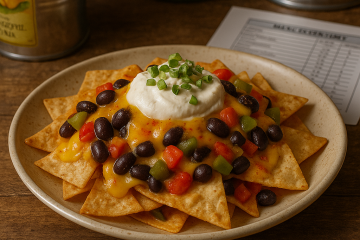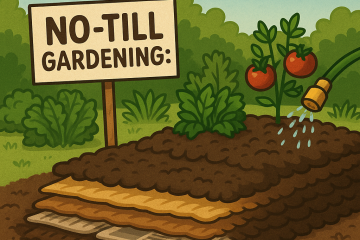No, You’re Not Crazy
How to influence that skeptical spouse when it comes to emergency preparedness efforts is a query I hear frequently in my line of work. I affectionately call it the “$64 million dollar question.” Surprisingly, the question isn’t dominated by one particular sex or the other, either. I guess both men and women are equally skeptical when it comes to this topic. Obviously, it is tough to have one member of the family focused on something so important without the support of knowledge, enthusiasm and additional expertise from the other. Being on the same page for this sort of thing boils down to more than just being able to “share in a hobby”—it’s literally lifesaving. That’s why I address this query with some very specific and deliberate strategies.
Money. Money is usually the number one reason why a spouse is not on board with food storage acquisition. The minute you go out and put a bunch of money on a credit card to obtain some emergency preparedness supplies, you’ve created a valid barrier. Even if your spouse was on board with preparedness, that shouldn’t be an acceptable action. Be just as prudent in acquiring your supplies as you are in the fact that you DO prepare for a rainy day. I assure you that when you come home with a couple bags of emergency preparedness supplies and are able to tell your spouse that you got them for nearly free or cheap, you will have successfully taken down one of their most strident objections. Just as many divorces ultimately end as the result of a disagreement about finances, emergency preparedness efforts are thwarted the same way. If you are prudent and consistent in your preparedness efforts, you’ll be able to prepare without starting World War III in your home.
USE and Familiarity. Any spouse would be understandably frustrated to have their partner bring home a relatively large or significant investment such as a solar oven, a pressure cooker, a Glock handgun, etc., only to have it collect dust and take up valuable space. No purchase you make for emergency preparedness should be disconnected or “foreign” to you. You should incorporate it in your life on a regular basis. It’s really not so much about “emergency preparedness” as it is just plain “preparedness.” For example, I have a lot of folks who attend my “Bring on the Sun” solar oven class and tell me that they have owned one for ages but never knew how to use it. Obviously they bought it “for emergencies.” Argh! That makes me cringe. I have to wonder how their spouse felt about tripping over this big lug of inconvenience that was purchased “just in case the aliens attack.” If you don’t use it folks, it’s no help to you and it doesn’t get attached to a realistic scenario in your spouses mind. When you can present a delicious meal that was prepared in your pressure cooker, for example, the doubting spouse will simply see the meal as a yummy, simple, and efficient way of cooking—not another expense for a “fantasy ‘what if’ scenario” that they don’t believe will actually occur. If the use of your tools and preparedness supplies is sporadic, it sends the wrong message to the doubters in your life about your level of commitment to preparedness. If you’re committed enough to use money out of your family budget to acquire it, then you really should be serious enough to utilize and be familiar with the item as well.
I had the luxury of being equally yoked with my husband in our emergency preparedness efforts, but I can assure you that if I were to ask him to get me something that costs more than 50 bucks, I darn well better be prepared to show him the WHY I would like such a tool, and then immediately use it when it comes into the home. For example, he bought me a large pressure canner for our anniversary recently. I made sure that I was canning meat that very weekend, showed him how easy it was, and then followed up with making a couple of yummy meals from the results of that canning. You can bet that he didn’t feel like the purchase was a waste. If you bring home that handgun, be prepared to practice with it and participate in as many classes as you can. If you purchase the Food Saver, start using it. I think you get my point. (By the way, I’ve discovered that the best bang for your buck on a Food Saver is ONLINE at Costco and they now make their own Costco brand bags that are a lot less expensive. The Food Saver comes with all of the necessary attachments. Even in comparison to Ebay, it’s a great deal.)
Education. Use every opportunity to factually educate your spouse—not preach to them. For example, make a scrumptious casserole or brisket in your solar oven. When you present it to your spouse and family for dinner, tell them how easy it was and how it didn’t require any electricity. You don’t even need to mention the word “preparedness.” The dots will get connected eventually so that you don’t have to translate everything into plans for an emergency. If you aren’t able to spend the money on something until your spouse is “converted”, then borrow someone else’s and demonstrate it for them. You’ll be better off mentally for having used it successfully, and you’ll be better for putting your mind in the position of a student, than a teacher. It’s a win/win situation with this approach. In order to properly educate those around you, be sure to be fully educated yourself so that your “teachings” aren’t just theory or supposition. They are much more readily accepted when delivered this way.
Patience. Your own preparedness efforts take patience and faith. The same holds true in educating the doubters in your life. Patience is usually only fortified by consistency. If the doubting spouse in your life sees a crack in your resolve, they tend to go after it mercilessly. Make your plan and then execute it with the resources that you have available to you. Be patient and faithful that those around you will receive their own enlightenment about preparedness little by little as well. Your example will go a very long way in helping them to understand and internalize for themselves the importance of this mindset.
Immersion. A lot of folks believe that “doomsday” will never come. They have heard about it for so long that they are just plain tired of hearing it and being beat up by it. In other words, it’s not a reality to them at all. To the unbeliever, it’s just a fantasy created by the makers of bottled water, camp stoves, and generators. One of the easiest ways to educate someone on the reality of preparedness is to help “immerse” them in a world in which such may be needed. Movies, books, and even “hypothetical questions” like “what do you think we would do if…” are very helpful in educating the mind of someone who may not “get it.” As I’ve shared previously, I loved the books Alas, Babylon by Pat Frank, One Second After by William Forstchen, Patriots: A Novel of Survival in the Coming Collapse by James Rawles, among many others. These are enjoyable books but also enlightening, causing even the most educated “prepper” to consider the reality of areas or possibilities that they may have missed previously. I also have found the right movies to work towards this purpose as well, such as “Independence Day,” “Twister,” “Outbreak,” “Red Dawn,” etc. These tactics are beneficial to those who need to mentally expose themselves to the possibility of unexpected events, but they are also great ways to strengthen your mental preparedness, too, as you find yourself mulling over what you’ve read or viewed and ask yourself “What would I do if…?” kinds of questions.
Clearly I wouldn’t be a preparedness pro instructor if I didn’t also encourage you to take advantage of the preparedness society that I’ve formed to help you and your family better prepare for disasters. Classes are vital. CERT training for example, doesn’t have to be about handling “the end of the world.” It can simply be about being a better asset to a community. But it will also go a long way in helping to transition the mind and the heart of resistant “preppers.”
Obviously, getting those you love and care for on board with preparedness is an important task. Unfortunately there isn’t a quick fix for it. Your efforts will need to be informed, consistent, prudent, and patient. But I can assure you that by using these efforts, you have the best chance of being successful. Good luck!
UNDERwhelmed in Food Storage Series
- UNDERwhelmed in Food Storage Part 1 of 8
- UNDERwhelmed in Food Storage Part 2 of 8
- UNDERwhelmed in Food Storage Part 3 of 8
- UNDERwhelmed in Food Storage Part 4 of 8
- UNDERwhelmed in Food Storage Part 5 of 8
- UNDERwhelmed in Food Storage Part 6 of 8
- UNDERwhelmed in Food Storage Part 7 of 8
- UNDERwhelmed in Food Storage Part 8 of 8
For any questions or comments on this article, please leave a comment on the blog site so that everyone can benefit!
Copyright Protected 2009, Preparedness Pro and Kellene. All Rights Reserved. No portion of any content on this site may be duplicated, transferred, copied, or published without written permission from the author. However, you are welcome to provide a link to the content on your site or in your written works.






6 Comments
Sup3D · July 17, 2009 at 6:28 pm
Kellene,
I love the Underwhelmed series you are working one. It has been full of some great advice.
My question though is about canning meat. You have had several articles about it and I can’t remember you answering this question. Oppologies if you have! How long does meat, say chicken, last when canned/cooked with a pressure cooker in a standard Mason jar as you talk about and stored in the dark at a cool room temperature(65 – 70)?
Thanks,
Sup3D
Sup3D · July 17, 2009 at 6:28 pm
Kellene,
I love the Underwhelmed series you are working one. It has been full of some great advice.
My question though is about canning meat. You have had several articles about it and I can’t remember you answering this question. Oppologies if you have! How long does meat, say chicken, last when canned/cooked with a pressure cooker in a standard Mason jar as you talk about and stored in the dark at a cool room temperature(65 – 70)?
Thanks,
Sup3D
Michael · July 18, 2009 at 1:29 am
Thanks for the Foodsaver Tip. We’ve been looking for a good price on the whole system!
Michael · July 18, 2009 at 1:29 am
Thanks for the Foodsaver Tip. We’ve been looking for a good price on the whole system!
Comments are closed.